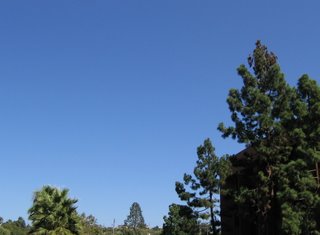
“How the world dearly loves a cage.”
--Collin Higgins, from the script of "Harold and Maude"
Noting an increasing number of people publicly calling attention to their religious faith, President Bush said yesterday that we might be in the midst of what he called a third Great Awakening. I was thinking about that comment when I read this, referring to a similar cultural shift some 350 years ago:
“What grew more and more evident as time went on was that motion is everywhere and rest is the unusual state. The upshot was that in place of the age-old static world the new was what is called dynamic. Needless to say, the source of truth likewise shifted, from settled revelation to restless experiment; truth itself was no longer static. Science took pride in having the courage to discard its own views....
“At this point comes the paradox: the age of the new method and the new revelations (in the plural and without capital letter) saw a resurgence of superstition, most violently expressed in the persecution of witches. Yet it should be no surprise that when novel ideas set minds wondering and tongues wagging, strong minds with well thought out convictions should resist and defend the status quo.
“Not everybody has the mental elasticity to be a fideist, believe in Genesis and Galileo at the same time. There is always a conservative party, and by a kind of Newtonian law of the mind, action is matched by an equal reaction; one branch of the conservative party turns reactionary and clings more intensely to the old convictions.”
This is from Jacques Barzun’s 2000 book “From Dawn to Decadence.” As you may know from previous posts, I have been savoring this book for a while--and I will continue to.
If we are going to consider whether we are living amid a new “Great Awakening,” it behooves us to be very clear to what extent it is a reversion to superstition and an attempt to turn back the clock on scientific research.
Wednesday, September 13, 2006
A Great Awakening of What?
Subscribe to:
Post Comments (Atom)






No comments:
Post a Comment